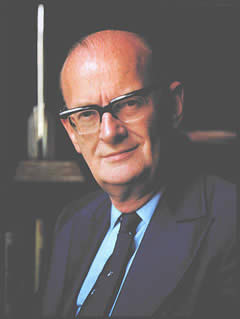 The British born author Arthur C. Clarke, best known for his science-fiction writing, passed away today at the age of 90. Clarke was the author of over 100 fiction and non-fiction books and short stories, and was best known to the world of cinema for his groundbreaking and visionary 1968 screenplay and corresponding novel, “2001: A Space Odyssey”.
The British born author Arthur C. Clarke, best known for his science-fiction writing, passed away today at the age of 90. Clarke was the author of over 100 fiction and non-fiction books and short stories, and was best known to the world of cinema for his groundbreaking and visionary 1968 screenplay and corresponding novel, “2001: A Space Odyssey”.
Clarke collaborated with director Stanley Kubrick in writing the screenplay to the film, and the book was subsequently published after the release its release in 1968. The idea for the screenplay was initially loosely based on a 1948 short story of Clarke’s,” The Sentinal”. “2001: A Space Odyssey” was by all measures revolutionary film for its time, breaking ground in its use of special affects and sound.
The themes of artificial intelligence, human evolution, social denigration, extraterrestrial life, and technological advancements have over time struck a powerful chord with audiences and critics. The film is often cited as a landmark achievement in cinema, and was selected for preservation by the Library of Congress’ National Film Registry for its significance.
The depiction of the future that Clark introduced with his screenplay, including the impact of computers and communication technologies, are often cited for their visionary credence.
Clarke became a well-known name to many Americans shortly after “Space Odyssey” was released, and contributed to television news programs as a space and science commentator.
Following the success of “2001: A Space Odyssey”, Clarke penned a sequel, “2010: Odyssey Two”, which was published in 1982. In 1984 director Peter Hyams adapted Clarke’s work into film with the title “2010: The Year We Make Contact”. Clarke also wrote two more novels in the “Odyssey” series, including the 1987 “2061: Odyssey Three”, and “3001: The Final Odyssey”.
Clarke’s 1972 novel, “Rendevous with Rama”, has been adapted into a screenplay, and is currently in pre-production, with a release date slated for sometime in 2009. David Fincher has been signed on to direct, and Morgan Freeman will star.
Clark will be put to rest over the weekend in Sri Lanka, where he had lived since 1956.

